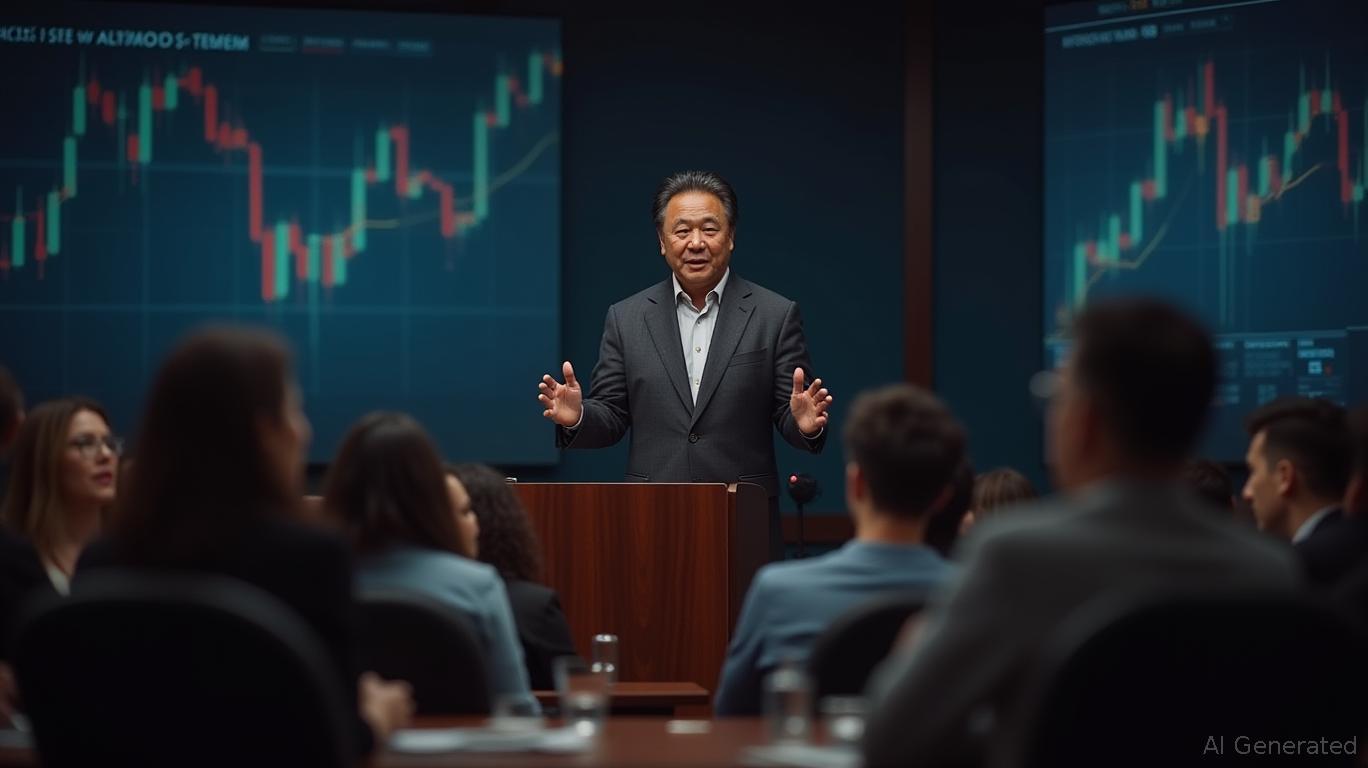Bitcoin Updates Today: Kiyosaki’s Wager on Bitcoin: Reassessing Investment Strategies Amid Declining Fiat Supremacy
Robert Kiyosaki, the well-known author behind Rich Dad Poor Dad, has escalated his warnings about a looming worldwide financial meltdown, predicting that a market crash in November 2025 could wipe out vast amounts of wealth for those invested in conventional assets such as stocks and bonds. As a financial educator and a strong supporter of
Kiyosaki’s outlook coincides with recent swings in the crypto market, where Bitcoin (BTC) and

The optimistic outlook for Bitcoin is further supported by industry leaders like MicroStrategy CEO Michael Saylor, who believes the cryptocurrency could hit $150,000 by the end of the year. In an interview with CNBC, Saylor pointed out that Bitcoin’s “growth cycle is still strong,” highlighting lower volatility and greater institutional involvement as positive factors, as reported by
Kiyosaki, on the other hand, has set an even loftier target, predicting Bitcoin could climb to $200,000 by Christmas. He combines macroeconomic trends with insights from behavioral finance, suggesting that emotional intelligence is more important than technical expertise when navigating market cycles. “Losers are more afraid of losing than becoming wealthy,” he posted on X, emphasizing that fear often causes investors to sell during downturns and miss out on recoveries. This mindset resonates with retail investors who have moved to spot trading after $19 billion in liquidations in October, indicating a preference for direct asset ownership and self-custody, according to
Wider economic conditions reinforce Kiyosaki’s concerns. Ongoing inflation, global conflicts, and weakening fiat currencies have undermined confidence in traditional financial systems. While gold and silver have long served as safe havens, cryptocurrencies are now joining them as alternative investments. Tether’s latest financial statement—showing $181.2 billion in reserves, including $9.9 billion in Bitcoin—demonstrates growing institutional trust in digital assets, according to a
Some critics warn that Bitcoin’s price swings still pose significant risks, especially for short-term traders. Nevertheless, both Kiyosaki and Saylor advocate for a long-term approach, viewing current market dips as part of a larger cycle rather than a reversal of the trend. On-chain data shows that more investors are accumulating Bitcoin, with exchange balances falling as assets are transferred to private wallets, according to
As November 2025 draws near, opinions in the financial sector remain split. While Kiyosaki’s prediction of a crash has not yet come to pass, his support for Bitcoin and gold highlights a broader transformation in how investors allocate assets. The key takeaway for investors: in a time of extraordinary economic uncertainty, diversifying holdings, maintaining emotional discipline, and rethinking traditional financial strategies could be more important than ever.